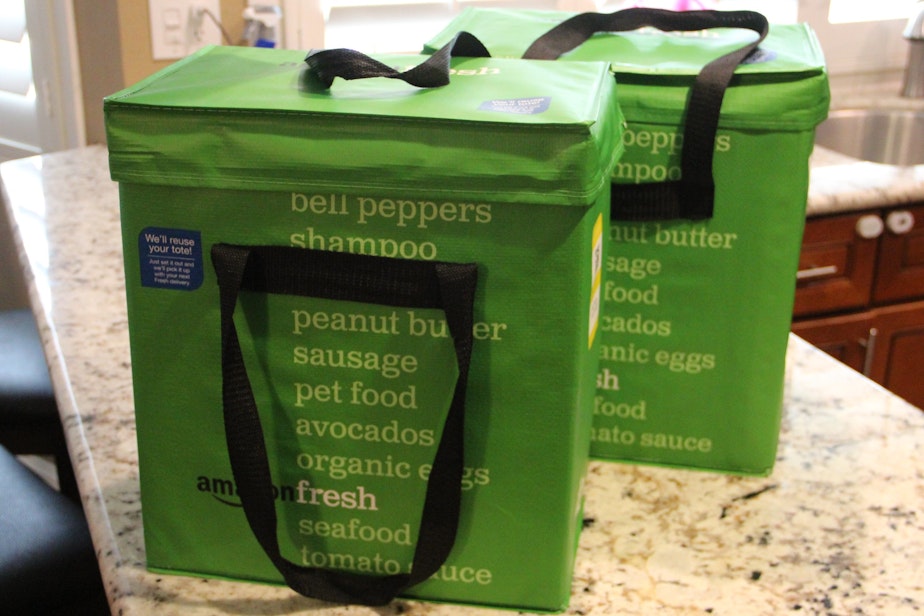Grocery delivery war heats up as Amazon waives delivery fee for Prime members

Selling groceries is big business, but the profit margins are thin.
Companies like Amazon have been putting a lot of money toward growing their market share.
This week Amazon announced it will waive its grocery delivery fee for Prime members. It’s part of the company’s strategy to become a big player in a $700 billion industry.
“They always focus on the long term,” said Suresh Kotha, professor of competitive strategy at the University of Washington’s Foster School of Business. “It’s not a surprise it’s taking them a little longer, because these markets are hard to break into and do a very good job.”
Amazon’s venture into groceries started in 2007 when it founded Amazon Fresh. In 2017, it bought Whole Foods. Over time, these moves have helped build the company’s scale and logistics.
Kotha said competitors will have to come with ways to stand out.
“So they have to sink money to compete,” he said. “They have to get good at delivery services and they have to compete with Amazon, otherwise they’re going to lose market share.”
Sponsored
Kotha points out that Amazon’s grocery delivery is not free. Customers have to pay $120 to become a Prime member to use that perk.




